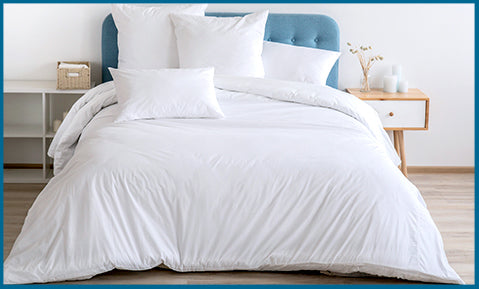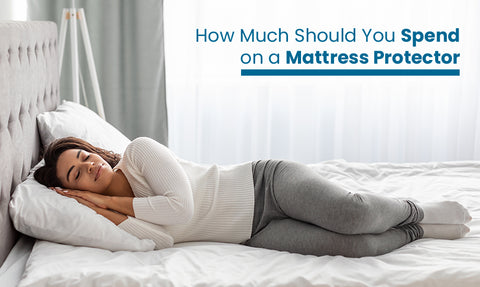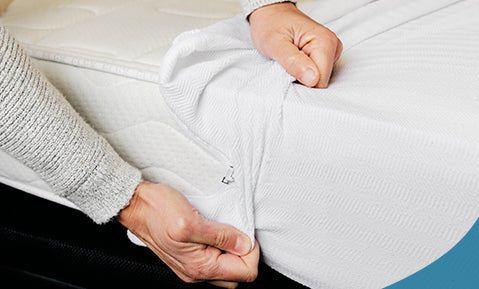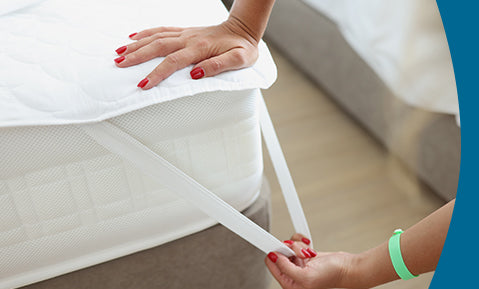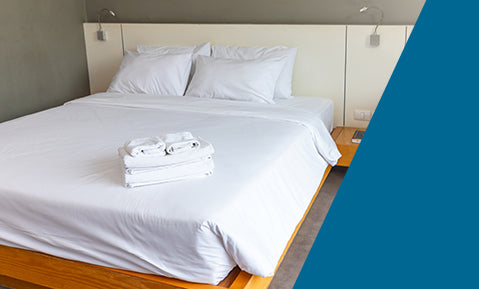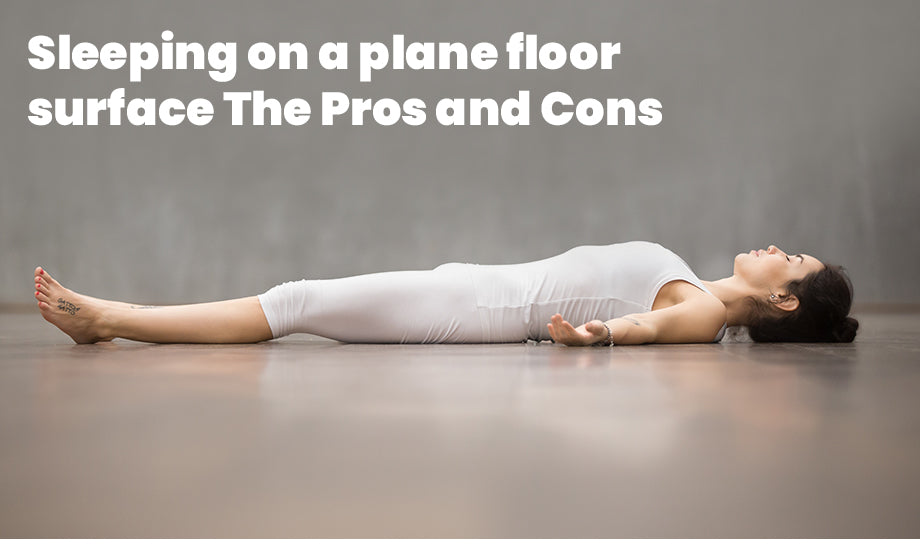
We often treat sleep as some unworthy process. But if we look closely, it is the most wonderful process on earth. We lose command over things temporarily and get dissolved in nothingness and create our own world in our dreams. But if this gets wrong, the price remains unpaid. So, it is important to sleep properly. You have often heard your elders saying that they used to sleep on the floor or sometimes people do that in anxiety or if they are having sleepless nights. The question is, Is that safe?
So, let’s look at the positive and negative shades of sleeping on the floor.
What is good about Sleeping on a Plane Floor Surface?

Here are a few benefits of Sleeping on a Plane Floor Surface: -
- During Summer – acts like a cure
It could be more comfortable at a cooler temperature.
Since heat rises, it makes sense that sleeping on the floor would keep you cooler at night. Your body heat quickly decreases when the floor is chilly. This can improve sleep quality for people undergoing sweating. In general, a colder bedroom atmosphere promotes better sleep.
- Providing a firm support
A lot of folks, including 75% of surgeons performing bone operations, consider a firmer mattress prevents back discomfort. It is also advised that people with back discomfort sleep on a solid surface, as recommended by the National Institute of Neurological Disorders and Stroke. Back pain has many different types of causes. A firmer sleeping surface could offer some help, depending on what's causing your back pain and how you like to sleep. For instance, back discomfort is frequently felt with an uncomfortable bed mattress. You can always look for a comfortable mattress. You are more inclined to sink deeply into a mattress that is too soft. This can result in poor sleeping posture, causing your spine to flex out of alignment. This imbalance can put a lot of pressure on your spine and cause back stiffness. Hence, sleeping on the floor gives support to your spine.
Cervical patients can also use cervical pillows even while sleeping on the floor.
- Aligns your posture
Back pain can also result from poor posture, which can also cause additional issues like diminished flexibility, spinal misalignment, and an elevated risk of injury. Your spine's natural curvature is balanced by firm support. Since you won't have to worry about sinking too far into a mattress, sleeping on the floor can help you maintain a straight spine while you're asleep. To lessen the strain on your spine, you might need to use pillows; for example, you might want to place a thin pillow beneath your lower back.
- Giving relief from sciatica
The sciatic nerve, which travels from your lower back to your hips, buttocks, and each leg, causes discomfort known as sciatica. It frequently results from a ruptured or bulging disc. A softer surface can make sciatica worse by rounding your back and putting more strain on your joints. Sleeping on the floor provides complete support and a firm mattress.
There isn't any concrete proof that sleeping on the floor relieves sciatica, though. The advantages cited are hypothetical. Before attempting to sleep on the floor if you suffer from sciatica, consult a physician or physical therapist.
Why should you worry before Sleeping on a Plane Floor Surface?
Here is a list of the side effects of sleeping on the floor.

- During winter – Acting as a trouble. Sleeping on the floor in the winter can be uncomfortable and cause interrupted, restless sleep, even if it might be beneficial during the warmer summer months. The coldness can also make you more likely to get a cold.
- Restless night - It can take some getting used to sleeping on the floor; for some people, it may never become normal. Consider examining your night-time routines if you wish to improve deep sleep. If you are not a regular sleeper, sleeping on the floor might cause more harm.
- Not a good choice for allergic people - It might not be the greatest idea to sleep on the floor if you have allergies. Your floor experiences might not be good as accumulating dust, filth, mites, and skin cells might cause allergies at night.
These are some signs of a serious allergy:-

- Wet, itchy eyes
- Rashes
- Runny noses and sneezing
- Coughing or breathing issues
- Worsening back pain - Conflicting information exists regarding back discomfort and sleeping on the floor. Some claim that it lessens pain, while others claim the reverse. Your spine cannot keep its normal bend on a hard surface, after all.
Researchers discovered that harder surfaces were linked to fewer advantages, in a study that was published in The Lancet in 2003.
Many people experience discomfort after sleeping on the floor.
If you are considering sleeping on the floor, you must follow certain safety measures for your back.
How to sleep peacefully on the floor?

If you've opted to sleep on the floor, you could wish to try these methods to improve your sleep.
- Don’t forget to clean - Keeping your bedroom tidy and clutter-free makes it easy to enter a sleep-friendly mood. Clear the space around your sleeping location of anything that may injure you. Clean, sweep or mop the floor on a regular basis to remove dirt and irritants. Wash your floor bedding on a regular basis as well.
- Choose your comfort - You have just as many options for building an optimal floor sleeping environment as you have for a basic bed. Some folks choose to keep things simple and sleep on a blanket or mat. Others want a little additional cushioning, such as a sleeping bag, futon, or memory foam topper. There are also folding or roll-up mattresses designed for sleeping on the floor. you may use a standard mattress on the floor instead of a bed frame. To make oneself more comfortable, add more sheets and layers.
- Optimize Your Sleeping Position - When you shift to the floor, your preferred sleep position may feel different. You may discover that you prefer a different sleeping position completely. Whatever position you pick, you may sleep peacefully by protecting the natural curve of your spine using special pillows. Back sleepers can ease lower back pain by placing a small cushion beneath the lower back and another beneath the knees. Head pillows should be used to fill the gap between the neck and the floor in order to assist spinal alignment.
To ease the strain, side sleepers might place a pillow between their knees. A tiny cushion placed between the waist and the floor might also be useful. Head pillows should have a higher loft, enough to fill the area between the edge of the shoulder and the nape to prevent aches and pains. Stomach sleepers are the most prone to neck and back discomfort. A small cushion beneath the hips might also help to relieve pain.
- Try It with a Nap - Sleeping on the floor is not the same as sleeping on a bed. It may take a few days or more to adjust. Try sleeping on the floor in various positions, starting with a nap. Some individuals enjoy sleeping on the floor, while others do not. If it doesn't seem right, you can always go back to your old bed. Don’t disturb your night-time.
Takeaway
You can sleep anywhere you find relief and comfort. Do what your body demands to achieve a night of better sleep. You can always use pillows and mattresses as suggested by physicians for better support. Find what’s best for your body and follow that. Learn to prioritize sleep like other tasks.

